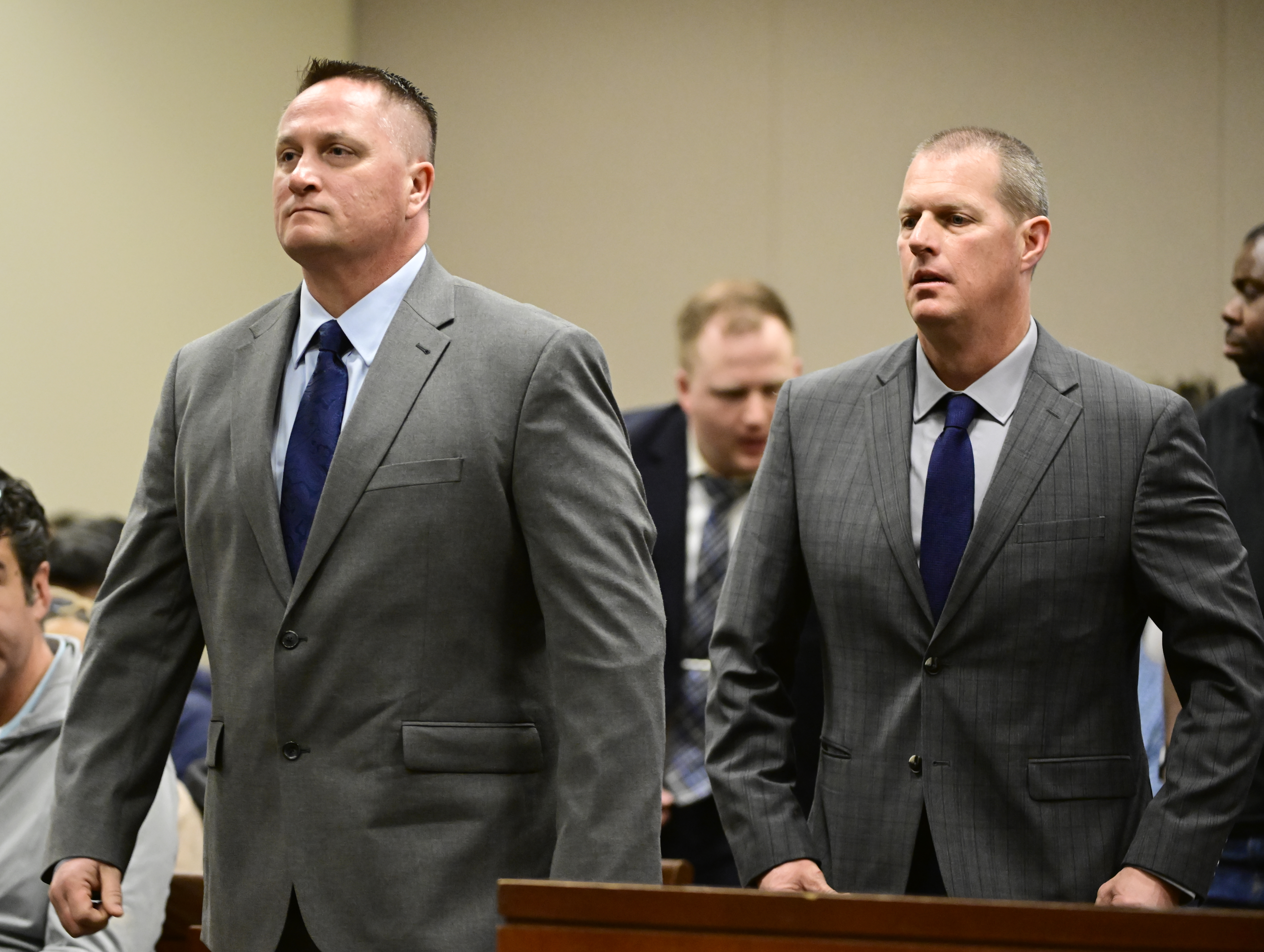A televised confession by Lance Armstrong isn't enough.
Anti-doping officials want the disgraced cyclist to admit his guilt under oath before considering whether to lift a lifetime ban clouding his future as a competitive athlete. That was seconded by at least one former teammate whom Armstrong pushed aside on his way to the top of the Tour de France podium.
"Lance knows everything that happened," Frankie Andreu told The Associated Press on Tuesday. "He's the one who knows who did what because he was the ringleader. It's up to him how much he wants to expose."
Armstrong has been in conversations with U.S. Anti-Doping Agency officials, touching off speculation that he may be willing to cooperate with authorities there and name names.
Interviewer Oprah Winfrey didn't say if the subject was broached during the taping Monday at a downtown Austin hotel. In an appearance on "CBS This Morning," she declined to give details of what Armstrong told her, but said she was "mesmerized and riveted by some of his answers."
Asked whether the disgraced cyclist appeared genuinely contrite after a decade of fierce denials, Winfrey replied, "I felt that he was thoughtful, I thought that he was serious, I thought that he certainly had prepared for this moment. I would say that he met the moment."
She was promoting what has become a two-part special, Thursday and Friday, on her OWN network.
U.S. & World
News from around the country and around the globe
Around the same time, World Anti-Doping Agency officials issued a statement saying nothing short of "a full confession under oath" would cause them to reconsider Armstrong's lifetime ban from sanctioned events.
The International Cycling Union also urged Armstrong to tell his story to an independent commission it has set up to examine claims that the sport's governing body hid suspicious samples from the cyclist, accepted financial donations from him and helped him avoid detection in doping tests.
The ban was only one of several penalties handed to Armstrong after a scathing, 1,000-page report by USADA last year. The cyclist was also stripped of his seven Tour de France titles, lost nearly all of his endorsements and was forced to cut ties with the Livestrong cancer charity he founded in 1997.
The report portrayed Armstrong as the mastermind of a long-running scheme that employed steroids, blood boosters such as EPO, and a range of other performance-enhancers to dominate the tour. It included revealing testimony from 11 former teammates, including Andreu and his wife, Betsy.
"A lot of it was news and shocking to me," Andreu said. "I am sure it's shocking to the world. There's been signs leading up to this moment for a long time. For my wife and I, we've been attacked and ripped apart by Lance and all of his people, and all his supporters repeatedly for a long time. I just wish they wouldn't have been so blind and opened up their eyes earlier to all the signs that indicated there was deception there, so that we wouldn't have had to suffer as much.
"And it's not only us," he added, "he's ruined a lot of people lives."
Armstrong was believed to have left for Hawaii. The street outside his Spanish-style villa on Austin's west side was quiet the day after international TV crews gathered there hoping to catch a glimpse of him. Nearby, members of his legal team mapped out a strategy on how to handle at least two pending lawsuits against Armstrong, and possibly a third.
The AP reported earlier Tuesday that Justice Department officials were likely to join a whistleblower lawsuit against Armstrong by former teammate Floyd Landis, citing a source who works outside the government and requested anonymity because he was not authorized to speak on the record about the matter.
The lawsuit by Landis, who was stripped of the 2006 Tour de France title after testing positive, alleges that Armstrong defrauded the U.S. government by repeatedly denying he used performance-enhancing drugs. The deadline to join the False Claims Act lawsuit, which could require Armstrong to return substantial sponsorship fees and pay a hefty penalty, is Thursday.
Landis is hardly the only one seeking money back from Armstrong.
During his long reign as cycling champion, Armstrong scolded some critics in public, didn't hesitate to punish outspoken riders during the race, and waged legal battles against still others in court.
The London-based Sunday Times has already filed a lawsuit to recover about $500,000 it paid Armstrong to settle a libel case, and Dallas-based SCA Promotions, which tried to deny him a promised bonus for a Tour de France win, has threatened to bring another lawsuit seeking to recover more than $7.5 million awarded by an arbitration panel.
In Australia, the government of the state of South Australia said it will seek the repayment of several million dollars in appearance fees paid to Armstrong for competing in the Tour Down Under in 2009, 2010 and 2011.
"We'd be more than happy for Mr. Armstrong to make any repayment of monies to us," South Australia Premier Jay Weatherill said.



